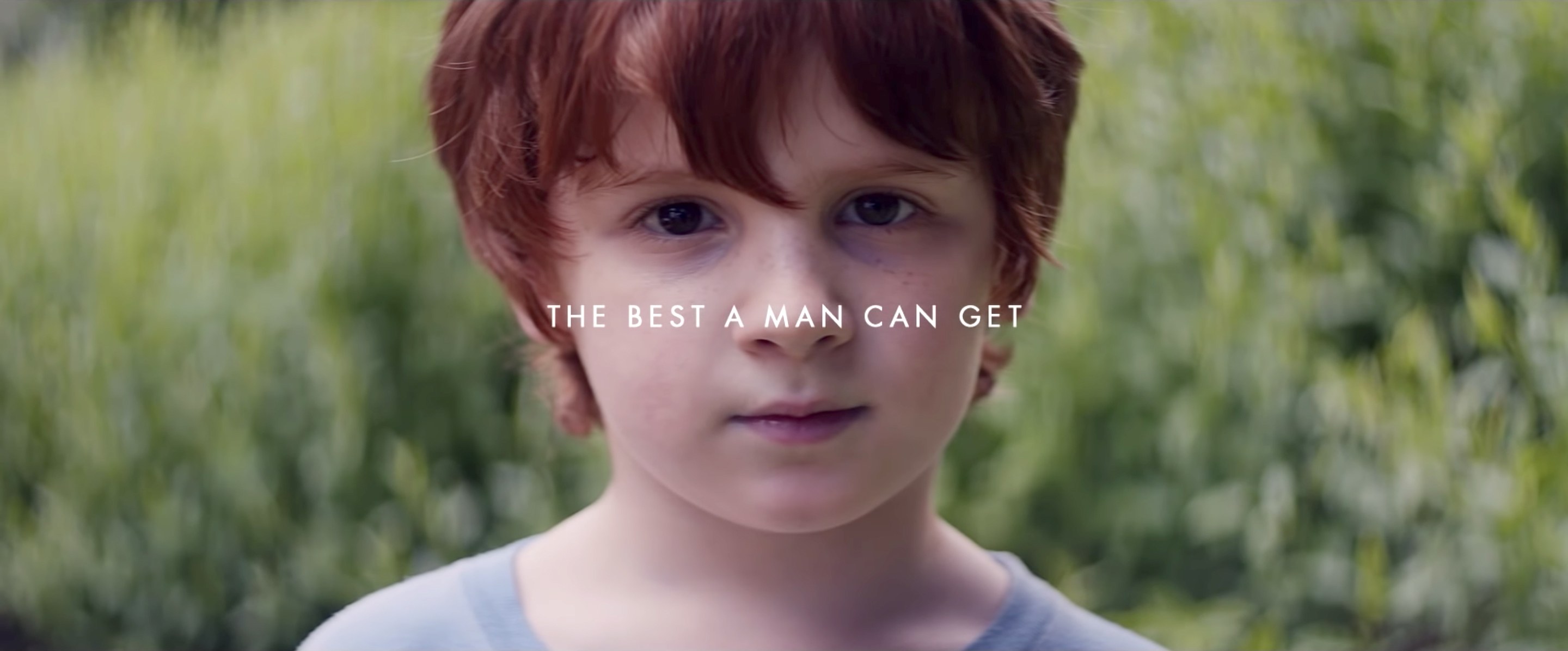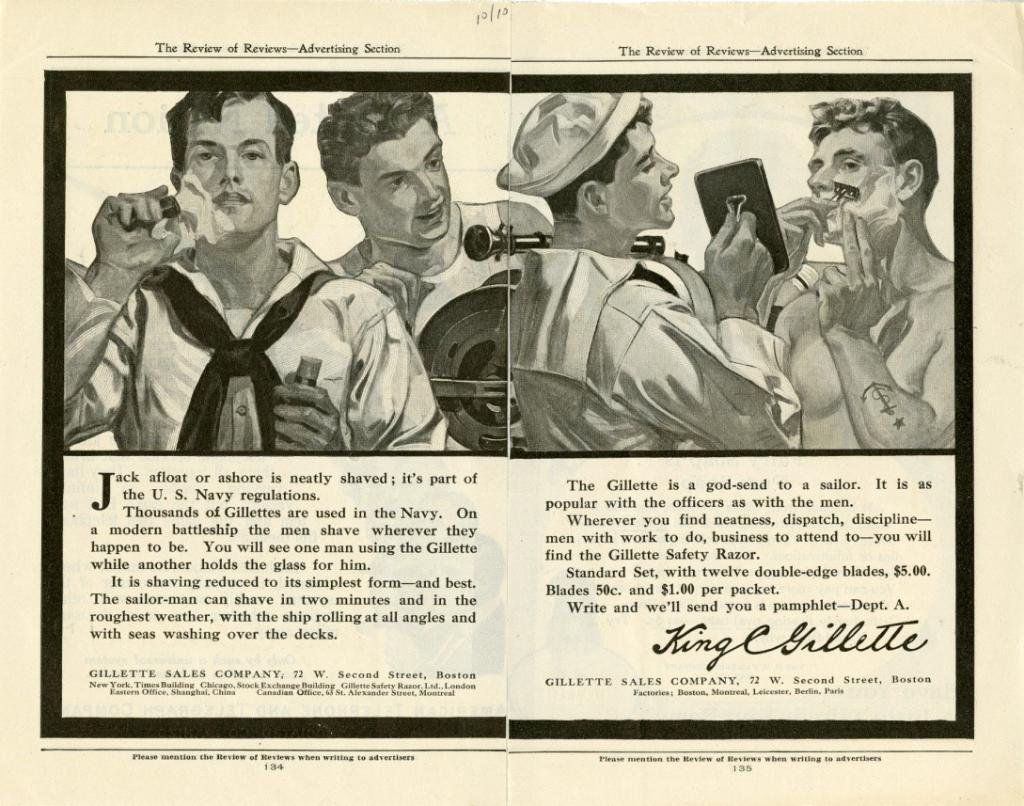Gillette Isn’t Doing Anything New

Type: Commercial
Campaign Name: We Believe: The Best that Men Can Be
It would be an understatement to say that the most recent Gillette ad campaign provoked a strong and emotional mixed response from consumers. Scroll Twitter and you’re sure to find comments ranging from consumers swearing they will never buy a Gillette product again, to others praising the company for taking a stand on a social issue.
Both reactions stem from the assumption that Gillette took a major branding pivot with “We Believe: The Best Men Can Be.” But one look at the brand’s marketing history shows that, instead, it’s par for the Gillette course. The commercial is selling razors by centering the brand’s narrative around the modern man.
For the past 115 years, Gillette has monetized images of what it means to be a man. In the early 1900s, when the Navy was both modernizing and expanding, this meant naval men finding the time to shave on a “modern battleship.”

If sailors can shave “on a modern battleship,” then every man should hold himself to that standard. Source
Flash forward to their 1989 campaign, The Best a Man Can Get, which depicted the everyday man in a plethora of heroic tropes — the business executive, the father, the astronaut, the athlete, the husband. Again, it reflected the expectations and tropes of the modern man then.

Screenshots from Gillette’s 1989, The Best a Man Can Get ad. Source
Therefore, it’s not surprising that their most recent ad campaign echos a buzzword of 2018: toxic masculinity. Whether you agree with the ad or not, topics around the nuances of masculinity and manhood have been at the forefront of social and cultural discussion, making it a mainstream topic.
Comedian Michael Ian Black writes in the New York Times’ Op-Ed section:
The past 50 years have redefined what it means to be female in America. Girls today are told that they can do anything, be anyone. They’ve absorbed the message: They’re outperforming boys in school at every level. But it isn’t just about performance. To be a girl today is to be the beneficiary of decades of conversation about the complexities of womanhood, its many forms and expressions.
Boys, though, have been left behind. No commensurate movement has emerged to help them navigate toward a full expression of their gender. It’s no longer enough to “be a man” — we no longer even know what that means.
Whereas previous campaigns associated Gillette razors with the “Be a Man” rhetoric, their newest campaign addresses a reevaluation of this notion, a sentiment echoed throughout contemporary social movements. Gillette hasn’t changed its marketing strategy; popular culture has just changed its mind about what the modern man is, and Gillette is reflecting it back to us.
Gillette states, “It’s time we acknowledge that brands, like ours, play a role in influencing culture. And as a company that encourages men to be their best, we have a responsibility to make sure we are promoting positive, attainable, inclusive and healthy versions of what it means to be a man.”
The result of this mission was “We Believe: The Best Men Can Be.”
https://www.youtube.com/watch?v=koPmuEyP3a0
Why the ad works:
- The timing is calculated.
Gillette isn’t the first mainstream brand to challenge toxic masculinity, so why did it garner so much attention? As stated earlier, Gillette has historically reflected the culture’s contemporary perspective on maleness, and it does so again with “We Believe: The Best Men Can Be.” What’s different is the perspective on femaleness that culturally accompanies it. In the era of the #metoo Movement, Gillette provides an overtly male response that says, “We hear you, and we will do better.” Add to that the fact that the spot was released at the top of the New Year — a time when change and self-improvement are at top-of-mind, whether you abide by New Year’s resolutions or not. - It’s self-reflective.
At the heart of the ad is the message that misogyny and toxic masculinity are the result of how men see themselves. Gillette even calls themselves out by harkening back to their own ad 30 years ago at the top of the video. Gillette demonstrates the accountability they are calling for, setting an example for others to follow. - People are talking about it.
For all the backlash the ad campaign received, including a spoof video, there’s no denying that the ad has caused a lot of dialogue. Even negative reactions from some social icons like Joe Rogan, who publicly bashed the campaign on his podcast, indicate that the ad’s message is affecting our culture, which is what Gillette wants in the first place — and of course to sell more razors.
For more marketing campaign analysis and inspiration, sign up for our GetDolphins newsletter here.